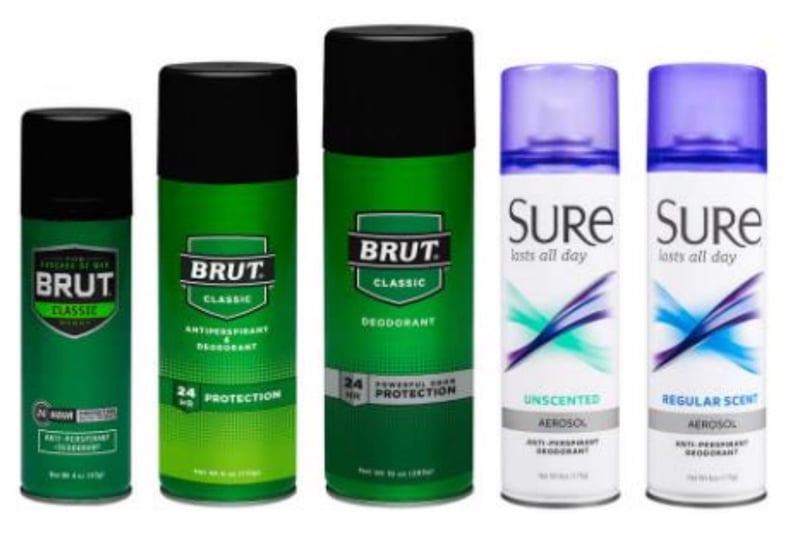Get Healthy!

- Posted February 24, 2022
Why Is Cancer-Linked Benzene in So Many Personal Care Products?
Dozens of different spray products -- deodorants, shampoos, sunscreens, athlete's foot treatments -- have been recalled in recent months due to contamination with the cancer-causing chemical benzene.
Most recently, six Brut and Sure aerosol antiperspirants faced recall last week due to benzene contamination.
But that's just the latest in a string of benzene-related recalls that include:
- Pantene and Herbal Essence dry shampoo and hair conditioner sprays in December.
- Old Spice and Secret spray antiperspirants in November.
- Tinactin and Lotrimin antifungal sprays and Coppertone sunscreen sprays in October.
- Neutrogena and Aveeno spray sunscreens in July.
Benzene is classified a Group A known human carcinogen by the U.S. Environmental Protection Agency. It's been most closely linked to leukemia and other blood cancers.
Exposure to benzene can occur through the skin, as well as by inhalation or ingestion, according to the U.S. Food and Drug Administration.
"We know in particular very low concentrations of benzene have been associated with increased cancer risk," said David Andrews, a senior scientist with the Environmental Working Group. "Benzene is very detrimental to cells, and can lead to direct DNA damage, cell death and ultimately increase the risk for cancer."
Unfortunately, no one's sure what's causing the benzene contamination in these personal care products, Andrews said.
"Some of the hypothesis is that it's from petroleum-derived ingredients" used in the spray propellant, he explained.
"But it still hasn't fully been determined exactly what that source is in all these products and if it's consistent across all of them," Andrews continued. "There are a lot of petroleum-derived ingredients in some consumer products, so it could be coming from one or more different ingredient sources."
The contamination isn't limited to one company's products: Johnson & Johnson, Bayer, Proctor & Gamble, and TCP HOT Acquisition LLC dba HRB Brands are among the manufacturers whose spray products have faced recall due to unexpected levels of benzene.
The Personal Care Products Council "is aware of recent studies reporting the presence of trace amounts of benzene in some personal care products," the industry trade group said in a statement.
"Benzene is a chemical that is ubiquitous in the environment and not an intentionally added ingredient in personal care products," the statement continued. "People worldwide are exposed daily to benzene from indoor and outdoor sources, including air, drinking water, and food and beverages."
The council added that "trace levels" of benzene "do not pose a safety concern for consumers."
"Based on exposure modeling and cancer risk assessments published by the U.S. Environmental Protection Agency, daily exposure to benzene in personal care products would not be expected to cause adverse health consequences," the council's statement said.
People who are concerned about benzene exposure should avoid spray products for personal care until more is known, Andrews said.
They also should call for more and better testing and regulation of these products, he added.
"Consumers who are aware of the issue should be asking the product manufacturers and sending their concerns to the Food and Drug Administration, because this is a place where there is not currently adequate oversight," Andrews said. "This is a piece of a larger issue in terms of the lack of FDA oversight and authority with respect to consumer personal care product manufacturing and regulation of contaminants."
More information
The American Cancer Society has more about benzene and cancer.
SOURCES: David Andrews, PhD, senior scientist, Environmental Working Group; Personal Care Products Council, statement, Feb. 22, 2022
